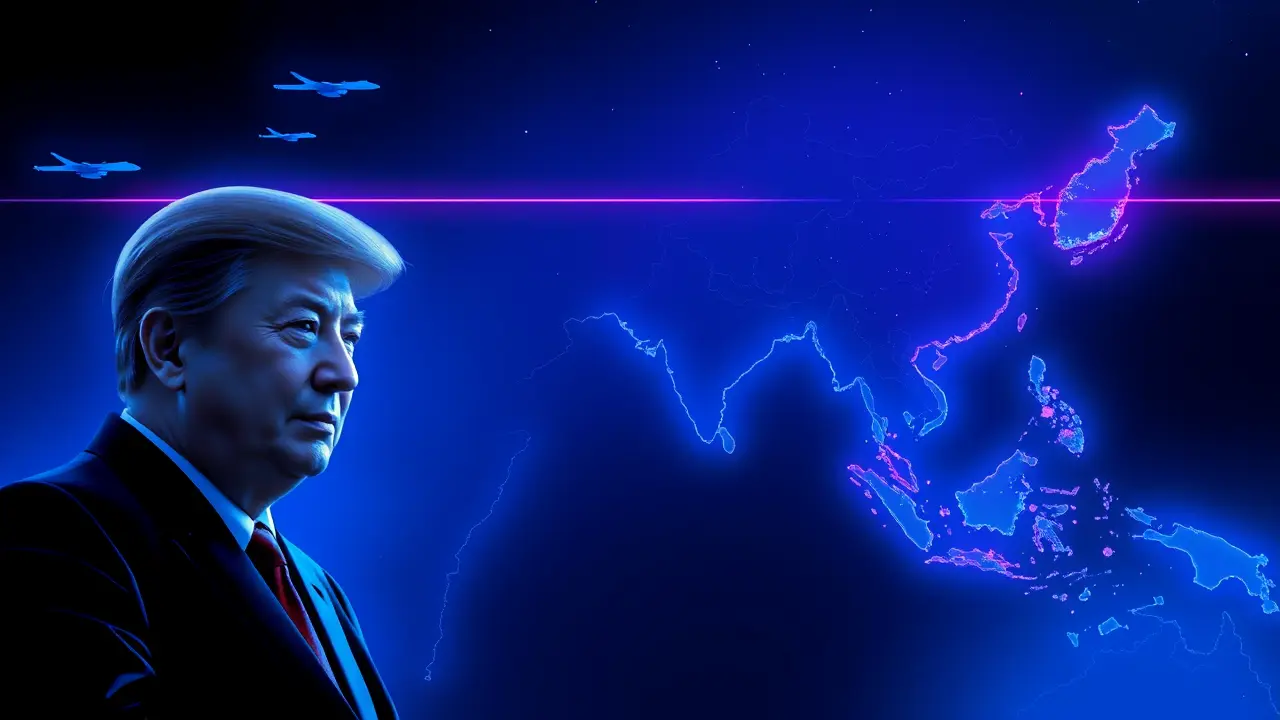
PoliticsdiplomacyBilateral Relations
Trump: Xi Assured No Taiwan Action
RO
Robert Hayes
12 hours ago7 min read
The recent assertion that former President Donald Trump received private assurances from Chinese leader Xi Jinping regarding military restraint towards Taiwan represents a significant, yet characteristically opaque, development in one of the world's most perilous geopolitical flashpoints. To fully comprehend the gravity of this claim, one must first appreciate the historical and strategic context that makes Taiwan such a tinderbox.The island, a vibrant self-governing democracy of 23 million people, has been a point of contention since the end of the Chinese Civil War in 1949, with Beijing consistently maintaining the 'One-China Principle' that labels Taiwan an inalienable part of its territory, to be reunified by force if necessary. This stance exists in a state of perpetual tension with the Taiwan Relations Act of 1979, through which the United States is legally committed to providing Taiwan with the means to defend itself, creating a policy of strategic ambiguity that has, for decades, prevented a catastrophic conflict.The revelation of such a personal assurance, if true, echoes the kind of great-power diplomacy seen during the Cold War, where leaders like Reagan and Gorbachev forged understandings that bypassed formal channels. However, it also raises profound questions about the durability of such informal pledges.Analysts at the Council on Foreign Relations would rightly point out that the Chinese Communist Party's ultimate objective—reunification—remains unchanged, and its military, the People's Liberation Army, has undergone a dramatic modernization specifically geared towards overwhelming Taiwanese defenses and deterring U. S.intervention. The constant incursions into Taiwan's Air Defense Identification Zone (ADIZ) by PLA aircraft are not mere provocations; they are calibrated acts of coercion designed to normalize a military presence and test responses.For the United States, this personal diplomacy creates a precarious dependency on the whims of individual leaders, potentially undermining decades of bipartisan foreign policy. A shift in the White House or in Zhongnanhai could instantly void such an assurance, leaving the region vulnerable to miscalculation.Furthermore, it places Taiwan itself in an increasingly vulnerable position, its future seemingly being negotiated over its head by powers that view its sovereignty through the lens of their own strategic competition. The situation invites historical parallels to the 1938 Munich Agreement, where personal assurances over Czechoslovakia ultimately failed to prevent a larger war, highlighting the inherent fragility of deals made without the backing of robust, transparent international frameworks. The long-term consequence of this episode may be a further erosion of trust in the delicate status quo, pushing all parties toward a more explicit, and therefore more dangerous, posture where the margin for error becomes vanishingly thin.
#featured
#Taiwan
#China
#US
#Donald Trump
#Xi Jinping
#diplomacy
#cross-strait relations
Stay Informed. Act Smarter.
Get weekly highlights, major headlines, and expert insights — then put your knowledge to work in our live prediction markets.
Related News
© 2025 Outpoll Service LTD. All rights reserved.













